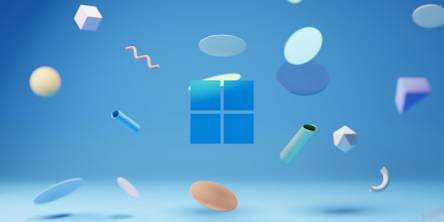Tips to Achieve Better Cybersecurity in Healthcare with Azure Cloud

In the past five years, more than 50 percent of healthcare companies have reported a data breach. Furthermore, according to research, a data breach in the private healthcare sector costs an average of $9.23 million. Suffice it to say that the healthcare sector has a problem on its hands when it comes to cybersecurity. Unfortunately, these issues and problems can be traced back to a handful of crucial cybersecurity challenges in healthcare, including:
- IoT devices: As the Internet of Things-driven devices become increasingly popular in healthcare. Thanks to Telehealth, there has been a growing focus on the risk such medical devices pose since they can be easily hacked into if they are insecure. This, in turn, poses a massive threat to the security of sensitive patient data.
- Ransomware: A malware that either locks users out of systems or encrypts files until the victim pays a ransom, ransomware has become a significant affliction for healthcare organizations, with 17% of all healthcare cyber attacks in the recent past being chalked up to ransomware. This is because healthcare organizations are often missing robust backups, and that renders such organizations highly vulnerable to such attacks.
There are several ways to improve cybersecurity in healthcare with Azure Cloud:
- Use Azure Active Directory (AAD) for identity and access management to secure access to healthcare data.
- Implement Azure Policy to ensure compliance with industry regulations such as HIPAA.
- Use Azure Security Center to detect and respond to security threats in real time.
- Use Azure Key Vault to secure and manage sensitive information such as encryption keys and passwords.
- Use Azure Information Protection to classify and protect sensitive data, such as patient records.
- Use Azure Backup to protect against data loss and ensure disaster recovery.
- Use Azure Monitor for logging and monitoring of your cloud environment for security events.
- Implement network security features, such as Azure Firewall or Azure Virtual Network, to protect against network-based attacks.
- Use Azure DDoS Protection to protect against DDoS attacks.
- Regularly run security assessments and penetration testing to identify and remediate vulnerabilities.
It's important to note that all these steps should be part of a comprehensive security strategy tailored to your healthcare organization's specific needs.
Finally, here are some tips to help healthcare organizations leverage Microsoft Azure Cloud to deal with challenges such as the ones listed above and strengthen their cybersecurity:
- Identity and access management: Among the many solutions healthcare providers can access via Azure is Azure Active Directory, a cloud-based identity, and access management offering. This service brings forth various features to enable user authentication, device management, and data security in healthcare companies. This particular solution can, among other things, be also leveraged to manage user access to apps, no matter if they are stored on-premises or in the cloud.
- Fortify data protection: Any healthcare organization must ensure compliance, maintain the highest levels of privacy, and protect data, including highly-sensitive patient data. Thankfully, this is quite simple with Azure which offers features such as compliance manager and data encryption to fortify data security even if unauthorized persons access it.
- Strategize threat detection and response: It may seem a tad redundant to say this, but here goes: threat detection and response are fundamental to robust cybersecurity, irrelevant of the sector in which your organization may operate. Azure Cloud also helps in this regard, thanks to an abundance of services and solutions, such as Microsoft Defender ATP and Azure Sentinel, aimed at empowering organizations to find, analyze, and respond appropriately to threats effectively and quickly.
There you have it, folks; a deep dive into cybersecurity in healthcare. In contrast, the healthcare sector continues to face grave threats and a great many challenges when it comes to cybersecurity. However, achieving the requisite and desired levels of security in the digital realm can prove quite simple, albeit with a rock-solid strategy and the right tools. As the above discussion demonstrates, Microsoft's Azure Cloud is one solution that healthcare providers can leverage to safeguard their systems and data thoroughly. What are you waiting for, then? Go ahead and look for a trusted vendor for Azure consulting services and get started on fortifying your healthcare establishment's cybersecurity immediately.
Similar Articles
Getting your IPTV to stream without constant interruptions often comes down to a few key things. It's not always about having the fastest internet speed, but more about making sure that speed is steady and reliable
Telegram has become one of the most powerful messaging platforms for communities, creators, and businesses. With built-in bot support and a fast-growing user base, it’s an ideal place to automate conversations, manage FAQs, and collect responses.
Scaling a business is thrilling. It's also terrifying. You gain ten new customers. Then a hundred. Then everything gets... wobbly. The email system crashes.
Setting up a colony on Mars means we need to think hard about how everyone will talk to each other. This isn't just about chatting; it's about getting work done, staying safe, and keeping things running smoothly.
The way we work isn't just changing, it's been completely turned on its head. Remember when the pandemic forced everyone home?
You know that sinking feeling when a project starts strong, then suddenly your client goes dark? Three weeks in, excitement morphs into eerie quiet. Revisions stack up with zero context. Every budget discussion makes your stomach tighten.
The cloud computing market is long past the point of simple migration. It is now defined by the practical application of advanced intelligence and distributed infrastructure.
In the rapidly shifting landscape of digital advertising, entrepreneurs are constantly seeking more reliable ways to connect with their customers across a fragmented web.
Agile and data driven companies have a clear competitive advantage. At least in the modern market. This shift has led to the adoption of specialized software, such as CRM and various SaaS apps.









